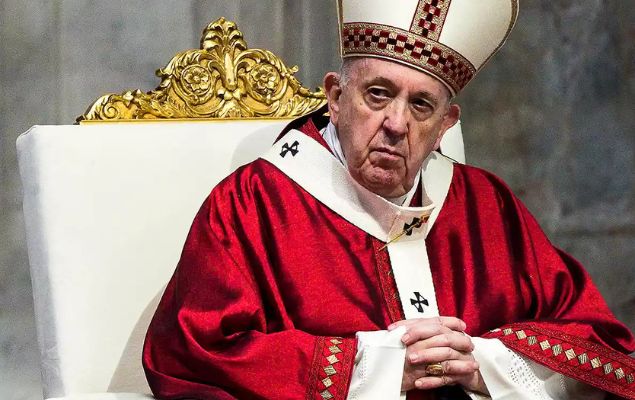Pope Francis Dies at Age 88 After Battling Health Crisis
Pope Francis Dies at 88: A Legacy of Humility, Compassion, and Reform Pope Francis, the spiritual leader of over

Pope Francis Dies at 88: A Legacy of Humility, Compassion, and Reform
Pope Francis, the spiritual leader of over 1.3 billion Catholics worldwide, passed away peacefully on Easter Monday, April 21, 2025. He was 88 years old. The Vatican confirmed his passing at his residence in Casa Santa Marta, Vatican City, where he had chosen to live instead of the traditional Apostolic Palace.
A Historic Pontiff
Born Jorge Mario Bergoglio on December 17, 1936, in Buenos Aires, Argentina, Pope Francis made history in March 2013 when he became the first pope from the Americas, the first Jesuit pope, and the first non-European pope in over 1,200 years.
Throughout his papacy, Francis was known for his down-to-earth approach, commitment to social justice, and deep care for the marginalized. He chose simplicity over grandeur, often forgoing papal luxuries in favor of a more modest lifestyle. His decision to reside in the Vatican guesthouse reflected his dedication to community and accessibility.

Final Days and Health Challenges
In recent years, Pope Francis faced numerous health challenges. He was hospitalized in February 2025 for double pneumonia after initially being treated for bronchitis. His condition fluctuated during a 38-day hospital stay before he returned home, where he passed away a few weeks later.
His final public appearances included delivering his Easter message and meeting with U.S. Vice President J.D. Vance, demonstrating his unwavering commitment to his duties despite declining health.
A Life of Service
Francis’ early life was marked by humble beginnings. He was the son of Italian immigrants and worked various jobs—such as a janitor and nightclub bouncer—before pursuing the priesthood. He studied theology in Argentina and Chile, later earning a degree from Colegio de San José.
Ordained in 1969, he steadily rose through the Church ranks, becoming Archbishop of Buenos Aires in 1998 and a cardinal in 2001, appointed by Pope John Paul II. In a display of his humility, he urged followers to donate to the poor instead of celebrating his cardinal appointment in Rome.

Impact and Influence
Pope Francis brought a renewed focus on inclusion, mercy, and humility. He frequently advocated for the poor and displaced, famously saying, “My people are poor and I am one of them.” His papacy also saw groundbreaking comments in support of same-sex civil unions, emphasizing dignity and respect for all people.
Yet, his tenure was not without controversy. He faced criticism for his handling of certain abuse allegations and occasionally sparked debate with his language and decisions. Still, many saw in him a compassionate reformer trying to steer the Church into a more inclusive and transparent era.

Remembering His Legacy
Francis was often described as a leader with both authority and empathy. He valued silent prayer, early mornings, and maintaining a rigorous yet humble routine. Biographers note that he hadn’t taken a vacation since the 1970s and was deeply committed to his responsibilities until the very end.
Cardinal Kevin Farrell paid tribute in an official Vatican statement:
“With profound sorrow, we announce the passing of our Holy Father Francis. His entire life was dedicated to serving God and the Church. He lived the Gospel with courage, kindness, and deep love for the forgotten.”
Looking Ahead
As the Catholic Church prepares for a new chapter, Pope Francis’ teachings and example will continue to inspire millions. His legacy as a pope of the people—rooted in humility, social justice, and spiritual conviction—will undoubtedly shape the future of the Church for generations to come.

Known for his humility and advocacy for the poor, his legacy leaves a lasting impact on the Catholic Church.








